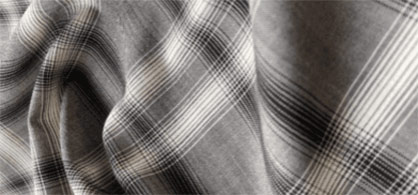#Recycling / Circular Economy
What is recycled wool and why is it so beneficial for the environment?
What Is Recycled Wool and Why Is It So Beneficial for the Environment?
Many leading textile brands – Marzotto being one example – use recycled wool fibres to produce their high quality garments. The International Wool Textile Organisation (IWTO) examines the practice of recycling wool and explains why it is so beneficial for the environment, producers and end users.

The History of Recycled Wool
Recycling practices are a relatively recent development for most industries. This is not the case for woollen textiles, however. There is a long history in European textiles, going back hundreds of years, of reusing wool fibres to make new garments. Old garments find their way to businesses who have the capacity to reduce them to their constituent fibres and then turn them back into yarn, ready to be knitted into brand new products.
From the early 19th Century, demand for wool has always exceeded supply, making it necessary to recycle existing fibres in an effort to close the gap. Today, with sustainability and conservation being so important to firms and consumers alike, the well-established practice of wool recycling lends itself well to eco-friendly business practices and the creation of garments with a low carbon footprint.
How Wool Recycling Works
The process followed by Comistra, the Italian company that is among the world’s leaders in wool regeneration, serves as an excellent illustration of how this textile is recycled.
Garments that reached the end of their lives are sorted into colours. Next, linings, zippers, labels and other extraneous materials are removed. The stripped down items are then sorted according to fineness and fabric quality. They are then passed through shredding machines to expose the raw wool fibres. Felt workers then bundle the fibres by hand, ready to be spun into yarn.
How Leading Brands Use Recycled Wool
Marzotto is a well-established Italian clothing manufacturer, who put recycled wool fibres to good use in their celebrated Lanerossi collection. The fibres are taken from the company’s own factory scraps, which are sorted by colour and then shredded and respun into yarn. The collection combines these pure wool fibres with polyester ones, taken from recycled plastic bottles. Through this process, Marzotto ensures that not a single wool fibre is wasted. This in turn allows the company to reduce its environmental impact substantially.
Learn More About Wool and All Its Uses and Benefits
Wool an extremely diverse material, with one of the major benefits being that it is sustainable for the environment. If you are looking to source recycled wool and yarn, we have compiled a list of relevant IWTO Members, their product descriptions and contact details. You can find that here:
https://iwto.org/wp-content/uploads/2021/06/20210505_IWTO_Recycled-Wool_FA.pdf
















